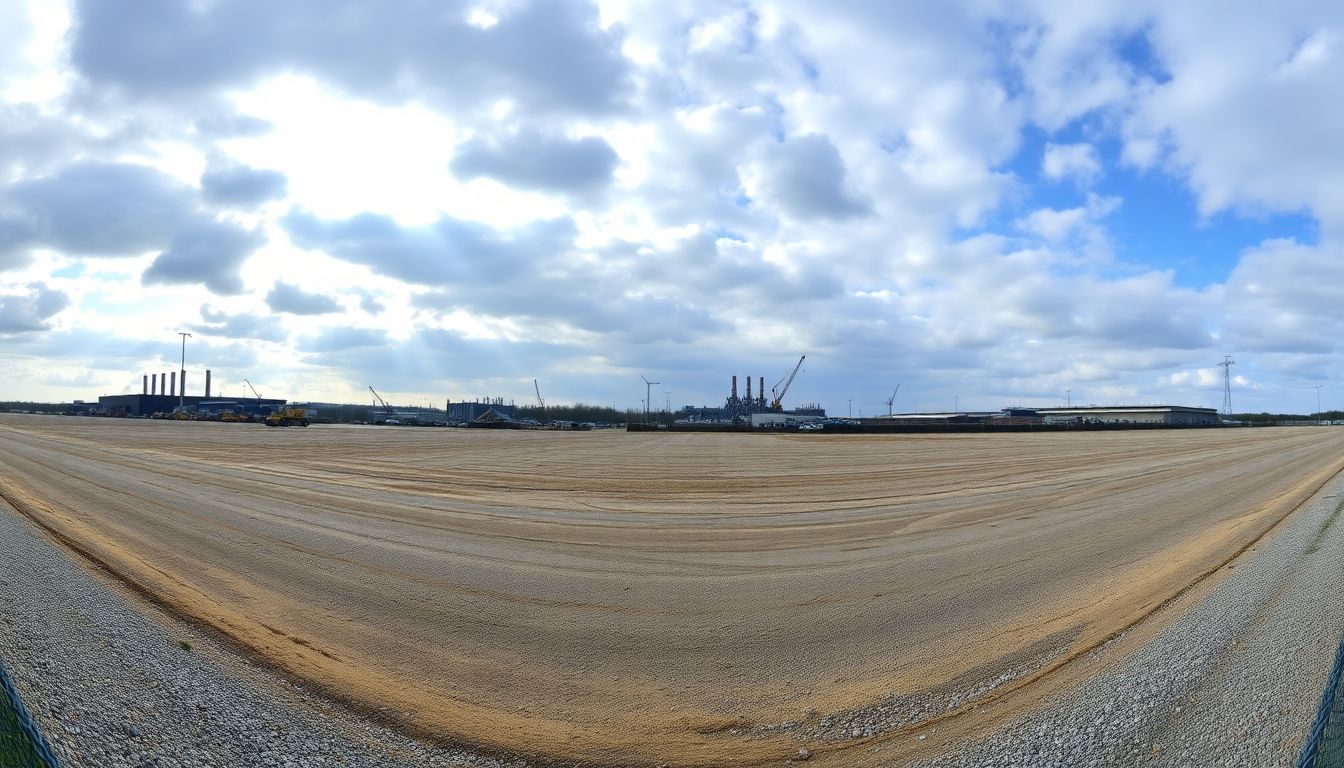Introduction
Industrial land is of prime importance for economic growth in the UK. It serves as the foundation for factories, warehouses, and logistics hubs. With the rise of e-commerce and the increasing demand for deliveries, the demand for industrial spaces is skyrocketing. Investors and developers are eager to purchase land in response to this growing demand. This guide will help you find the best industrial land for sale in the UK, whether you are an experienced investor or a first-time buyer.
The United Kingdom’s Industrial Land Market and Its Understanding
Market Overview and Trends
The UK industrial land market is booming, with prices rising in recent years. Experts predict that the demand for industrial land will continue to increase as companies seek more space for storing and moving goods. The COVID-19 pandemic accelerated the development of warehouses, particularly near major cities. Changes brought about by Brexit have also impacted land availability. However, several land-use planning projects are in place to increase industrial land supply in key regions.
Key Areas for Industrial Land Development
Some areas in the UK are particularly popular for industrial land development:
- Midlands: Known for large logistics parks around Birmingham.
- South East: Home to significant distribution centers near Kent.
- North West: A fast-growing region with opportunities around Manchester and Liverpool.
Each of these regions offers different land prices, infrastructure, and growth potential. Consider the pros and cons of each when selecting your industrial land.
Regulatory Environment and Planning Policies
Before purchasing industrial land, it’s crucial to understand the UK planning rules. While most land is zoned for industrial use, various restrictions may apply. In addition, sustainability concerns require developers to consider the environmental impact of their projects. Recent policy changes aim to expedite planning permissions, making it easier to fast-track development. Always review local regulations before acquiring land to ensure it aligns with your development plans.
Factors to Evaluate When Buying Industrial Land
Location and Accessibility
The location of industrial land plays a crucial role in its value. Ideally, land should be close to motorways, ports, and railway lines for easy transportation of goods. Warehouses near motorway junctions often attract logistics companies. Accessibility can be a dealbreaker, so it’s essential to consider how the land connects to neighboring cities and suppliers.
Zoning and Land Use Designation
Local councils define and regulate land use through zoning laws. Some zones are designated for light industry, such as warehouses, while others are meant for heavy manufacturing. Local planning offices are best equipped to confirm that the land you’re considering complies with the necessary zoning regulations. This is critical to ensure that your plans align with the local development rules.
Infrastructure and Utilities
Check if the land has access to essential utilities like electricity, water, and internet. Reliable infrastructure is crucial for the successful operation of factories or warehouses. Additionally, assess any flood risks and environmental conditions that may require costly remediation before development. Site inspections are essential to uncover potential issues that could affect the project later on.
Pricing and Financing Options
Land prices vary based on location, size, and available infrastructure. Land adjacent to major transport hubs tends to be more expensive. When it comes to financing, consider loan options or leasing arrangements. Negotiating the purchase price can help secure a better deal, so it’s important to understand the market pricing to avoid overpaying.
Planning and Investing in Industrial Land Development
Successful Land Development Tips
When planning industrial land development, think long-term. Design the site with future expansion in mind, and collaborate with architects and construction professionals from the start. Incorporating eco-friendly technologies, like solar panels, can add value to the property and ensure compliance with sustainability regulations. Planning for the long-term ensures a greater return on investment.
Risks and Challenges
As with any investment, industrial land development comes with its challenges. Market prices can fluctuate unpredictably, and the planning process may take longer than expected. Planning applications could also be denied, or environmental issues could add unforeseen costs. It’s important to conduct thorough research and prepare for potential delays and costs.
Case Studies of Successful Industrial Land Investments
Several UK companies have successfully grown by purchasing industrial land. For example, a logistics company bought a large estate near Heathrow, developed its operations, and saw significant growth. In contrast, some projects faced delays due to planning issues, which highlights the importance of thorough research and planning before purchasing land.
Expert Insights and Advice
Experts recommend conducting extensive research before purchasing industrial land. Speak with local officials, market analysts, and other industry professionals to ensure you’re making an informed decision. A well-thought-out plan can maximize returns and avoid costly mistakes.
Future of Industrial Land in the UK
Emerging Trends and Innovations
Recent trends in the UK’s industrial land market include the growth of logistics hubs, particularly last-mile delivery centers near urban areas. Additionally, automated delivery systems and green industrial zones that utilize renewable energy are gaining popularity. These innovations are reshaping the way industrial land is developed and used.
Government Initiatives and Incentives
The UK government offers funding programs and tax incentives for small to medium-sized industries. These initiatives make industrial site development more attractive and profitable for investors, contributing to the overall growth of the economy.
Conclusion
Investing in industrial land in the UK offers great opportunities but requires careful planning. Focus on the location, regulatory frameworks, and available infrastructure to make an informed decision. Conduct thorough research, consult with experts, and stay updated on market trends. With the right strategy, investing in industrial land can yield significant returns over time. Start today, and your future industrial empire might begin with just one piece of land.
